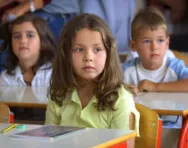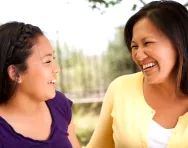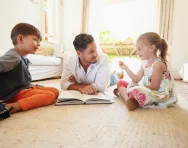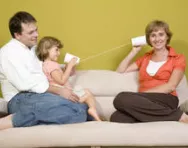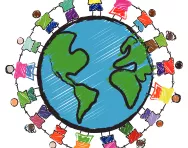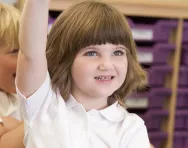Important update from TheSchoolRun
For the past 13 years, TheSchoolRun has been run by a small team of mums working from home, dedicated to providing quality educational resources to primary school parents. Unfortunately, rising supplier costs and falling revenue have made it impossible for us to continue operating, and we’ve had to make the difficult decision to close. The good news: We’ve arranged for another educational provider to take over many of our resources. These will be hosted on a new portal, where the content will be updated and expanded to support your child’s learning.
What this means for subscribers:
- Your subscription is still active, and for now, you can keep using the website as normal — just log in with your usual details to access all our articles and resources*.
- In a few months, all resources will move to the new portal. You’ll continue to have access there until your subscription ends. We’ll send you full details nearer the time.
- As a thank you for your support, we’ll also be sending you 16 primary school eBooks (worth £108.84) to download and keep.
A few changes to be aware of:
- The Learning Journey weekly email has ended, but your child’s plan will still be updated on your dashboard each Monday. Just log in to see the recommended worksheets.
- The 11+ weekly emails have now ended. We sent you all the remaining emails in the series at the end of March — please check your inbox (and spam folder) if you haven’t seen them. You can also follow the full programme here: 11+ Learning Journey.
If you have any questions, please contact us at [email protected]. Thank you for being part of our journey it’s been a privilege to support your family’s learning.
*If you need to reset your password, it will still work as usual. Please check your spam folder if the reset email doesn’t appear in your inbox.
12 brilliant debate topics for kids
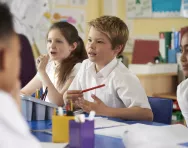
Some children seem to have opinions about anything, and don’t hesitate to share them. Others are more reticent, and have to be persuaded to share their viewpoints.
But whichever camp your child falls into, debating can have many benefits, including improving their communication and listening skills, building confidence and self-esteem and broadening their horizons.
We asked Ian Gilbert, author of The Compleat Thunks Book (Independent Thinking Press), to share some brilliant, thought-provoking debate topics (or, as he calls them, ‘Thunks’) that kids will love getting their heads around.
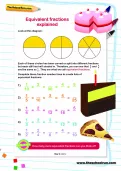
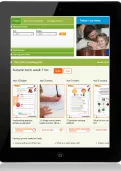
Boost Your Child's Maths & English Skills!
- Get a tailored learning plan for your child
- Complete the activities added each week
- See your child jump ahead in their knowledge and confidence
1. Is it right to bully a bully?
Children have an innate sense of what is right and wrong, but it can be very binary.
Their world is full of goodies and baddies through stories and films, but life is more complex than that.
This topic allows them a peek into another world where good and bad still exist but the lines are not quite so clear.
2. Does a dog mind what you stroke it with?
Children are prone to anthropomorphism, imbuing animals with human qualities.
This Thunk encourages them to explore to what extent dogs – a proxy for all animals, in many ways – have feelings beyond simple ones such as pleasure.
It also throws up the question of whether dogs and other animals have minds at all.
3. Should you say ‘thank you’ to a robot waiter?
We teach children to be polite, but for whose sake?
Is being polite something you do to make yourself feel accepted in society, or is something that we should do for the benefit of the person – or otherwise – we are being polite to?
This topic also throws up the notion of robot consciousness and ‘rights,’ especially in a world where we’ve just seen the first robot gain national citizenship, in Saudi Arabia.
4. Can anything be a toy?
The connection between toys and children runs deep, but these days, we can end up thinking that a toy is something that is made by someone else, and made to be a toy.
Children love discussing toy questions, and this one raises issues around ownership as well as purpose and design and the nature of play.
Follow-up questions for those who answer ‘yes’ might include, ‘Can air be a toy?’ or ‘Can another human be a toy?’
5. Can a pregnant woman ever be alone?
The ideas of consciousness, what it is to be human and what it is to be alive can be discussed here.
A good topic for older children, this might trigger other controversial issues to do with women’s rights. Important issues can be explored in a non-moralistic and safe way.
6. Is being scared of nothing worse than being scared of everything?
The concept of bravery can be almost stereotypical with children: boys are brave and they protect girls.
TV and books are full of this view, but maybe the ‘scared girl’ is doing the right things, and the ‘big brave male’ is making things worse.
And is being scared a good or a bad thing in the first place?
7. Is it unlucky if your cat does a poo in the shower tray?
This question comes from my own family’s personal experience, and still vexes us!
Again, the binary nature of children’s thinking can be challenged here. Are things either bad or good? Can things be neither? Can something be both good and bad, and how does that work?
8. Does a parent own his or her children?
Issues of ownership are important to children. So what is ownership – is it a right? Is it ‘God given’ or do you earn it? At what age do children stop being ‘owned’, if at all?
If parents own their children, can they legitimately sell them? And can a father ‘give away’ his daughter?
9. Do you have the same number of thoughts each day?
Children like to explore what is going on in their heads (for younger children, often out loud!).
Encouraging them to think about their thinking means we open them up to the idea of ‘metacognition,’ which has been shown to be helpful for academic success and wellbeing.
Where do thoughts come from? Where do they go? Can you count thoughts and, if you can’t, is it because you humanly can’t count them (like stars) or because they’re uncountable (like water)?
10. Can a blind person be racist?
It’s said that children don’t see colour, so is it the sight of difference that provokes feelings of distrust and dislike?
Is racism something that is inherent, or is it taught, and if so, by whom and why?
Can you be accidentally racist, and if so, should job interviews and political debates be held ‘blind,’ rather like the judging system they use in The Voice, so we’re not influenced by skin colour?
11. Were you loved less when your young brother or sister came along?
This is bound to cause a heated discussion, even if your children are all grown up!
Of course, all parents will deny this, so a follow-up question might be, ‘where does the extra love come from?’
This also raises questions about the nature of love. Is it something you feel, or something you do? Is it something you give, or something you receive? And do you love different things not only in different ways but with different sorts of love (like the Greeks attested)?
12. If you put a mirror next to a candle in a dark room, do you now have twice as much light?
A topic that encourages children to look around them and think deeply about the natural world.
Whereas some Thunks explore abstract concepts, they can also be used to open our eyes to the world around us; a world that we can easily take for granted unless we ask questions like this.
Other similar Thunks include, ‘Does the light come out upside down if I turn my torch upside down?’ and ‘Does the music come out upside down if I turn my speaker upside down?’
